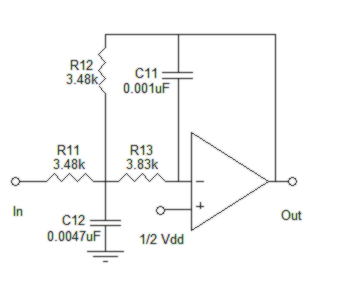Saad Tugelo Aikuk Ailo Asha Bhosle Konkani Song ((HOT))
Saad Tugelo Aikuk Ailo Asha Bhosle Konkani Song

Click Here >>> https://www.google.com/url?q=https%3A%2F%2Furluso.com%2F2twFks&sa=D&sntz=1&usg=AOvVaw2awPFuOmGGWW2TUANrKbp8
Saad Tugelo Aikuk Ailo: A Melodious Konkani Song by Asha Bhosle
Saad Tugelo Aikuk Ailo is a popular Konkani song sung by the legendary singer Asha Bhosle. The song is about a woman who expresses her love and longing for her beloved who has gone far away. The song has a soothing melody and beautiful lyrics that capture the emotions of the woman.
The song was originally composed by Chris Perry and written by Manohar Sardesai. Asha Bhosle sang it for the album Konkani Songs by Asha Bhosle, which was released in 1971. The song became an instant hit among the Konkani-speaking people of Goa and other parts of India.
The song has been covered by many other singers, such as Manasi Hedaoo, Dr MNK, and Vaibhav Rajendra. Some of them have also added English subtitles or lyrics to make the song more accessible to a wider audience. The song is still popular today and is often played at weddings and other celebrations.
Here are some of the lyrics of the song:
Saad tugelo aikuk ailo
Maka yevche bhangar dilo
Tujea mogan maka diso
Tujea mogan maka diso
You have gone far away
You have given me sorrow
Show me your love
Show me your love
Konkani is an Indo-Aryan language that belongs to the Indo-European language family. It is spoken by about 2.5 million people, mainly in the Konkan region of India, which includes Goa, Karnataka, Maharashtra, Kerala, Gujarat, and some union territories. Konkani is one of the 22 scheduled languages of India and the official language of Goa.
Konkani has a rich and diverse history that dates back to at least the 12th century CE. It has been influenced by various languages, such as Sanskrit, Prakrit, Marathi, Portuguese, Kannada, Malayalam, Arabic, Persian, and English. Konkani has also developed many dialects and variations that reflect the geographical and cultural diversity of its speakers.
Konkani is written in various scripts, such as Devanagari, Roman, Kannada, Malayalam, and Perso-Arabic. The most widely used script is Devanagari, which is also the official script of Goa. Konkani literature is rich and varied, with genres such as poetry, drama, folklore, novels, short stories, essays, and journalism. Some of the notable Konkani writers are Shenoi Goembab, Bakibab Borkar, Ravindra Kelekar, Damodar Mauzo, Pundalik Naik, and Mahabaleshwar Sail.
Konkani is a vibrant and expressive language that reflects the culture and identity of its speakers. It is also a language that has faced many challenges and struggles for recognition and preservation. Konkani speakers have fought for their linguistic rights and dignity in the face of oppression and discrimination from colonial and regional powers. Konkani is a language that celebrates its diversity and resilience in the face of adversity.
Konkani culture is the culture of the Konkani people, who have a distinct identity and heritage that spans across different states and regions of India. Konkani culture is influenced by various factors, such as geography, history, religion, ethnicity, and language. Konkani culture is also dynamic and adaptive, as it has absorbed and assimilated elements from other cultures that it has interacted with over time.
Some of the salient features of Konkani culture are:
Konkani cuisine: Konkani cuisine is mainly based on seafood, coconut, rice, and spices. Some of the popular dishes are fish curry, sol kadi, xitt kodi, ambat tikhat, patoli, sanna, nevri, alle belle, and dodol. Konkani cuisine also varies according to the region and community of the Konkanis. For example, Goan Konkani cuisine has a strong Portuguese influence, while Mangalorean Konkani cuisine has a strong Tulu and Kannada influence.
Konkani music: Konkani music is a rich and diverse form of expression that includes folk songs, devotional songs, classical music, modern music, and film music. Some of the folk songs are dulpods, mando, deknni, zagor, fugdi, dhalo, and kunnbi songs. Some of the devotional songs are bhajans, kirtans, aartis, and ovis. Some of the classical music forms are kheyal, thumri, bhajan, natya sangeet, and abhang. Some of the modern music genres are pop, rock, jazz, and fusion. Some of the famous Konkani musicians are Lata Mangeshkar, Asha Bhosle, Kishori Amonkar, Hridaynath Mangeshkar, Remo Fernandes, Wilfy Rebimbus, Alfred Rose, Chris Perry, Lorna Cordeiro, Babush Monserrate and many others.
Konkani literature: Konkani literature is one of the oldest and richest forms of literature in India. It has a long and illustrious history that dates back to at least the 12th century CE. It has produced many genres and forms of literature such as poetry (padya), prose (gadya), drama (natak), folklore (lok sahitya), novels (upanyas), short stories (laghu katha), essays (nibandh), journalism (patrakarita), and criticism (samiksha). Some of the eminent Konkani writers are Krishnadas Shama (16th century), Shenoi Goembab (19th century), Bakibab Borkar (20th century), Ravindra Kelekar (20th century), Damodar Mauzo (21st century), Pundalik Naik (21st century), Mahabaleshwar Sail (21st century) and many others.
12c6fc517c